An Editor’s Joy
by Linda Rodriguez
I
hold in my hands a beautiful book, an important book. It’s been a
labor of love to put this together, struggling with the herding-cats
nature of organizing a number of writers to get their work, bios, and
contracts in to meet deadlines. To carry a project from the first
bright idea through mounds of paper and emails to the final finished
book is always a thrill. Now, I hold an ARC of this anthology in my
hands, cover glowing.
hold in my hands a beautiful book, an important book. It’s been a
labor of love to put this together, struggling with the herding-cats
nature of organizing a number of writers to get their work, bios, and
contracts in to meet deadlines. To carry a project from the first
bright idea through mounds of paper and emails to the final finished
book is always a thrill. Now, I hold an ARC of this anthology in my
hands, cover glowing.
I’m
truly proud to announce that this anthology I co-edited with the
wonderful Diane Glancy, The
World Is One Place: Native American Poets Visit the Middle East,
will be published in February 2017. We have a fabulous list of
contributors: Joy Harjo, Linda Hogan, LeAnne Howe, Jim Barnes,
Kimberly M. Blaeser, Natalie Diaz, James Thomas Stevens, Bojan Louis,
Allison Hedge Coke, Travis Hedge Coke, Kim Shuck (who also did the
gorgeous beadwork used in the cover design), Trevino Brings Plenty,
and Craig Santos Perez. All of these highly regarded Native poets
have written poetry about their experiences of the Middle East and
the land and people they encountered there.
truly proud to announce that this anthology I co-edited with the
wonderful Diane Glancy, The
World Is One Place: Native American Poets Visit the Middle East,
will be published in February 2017. We have a fabulous list of
contributors: Joy Harjo, Linda Hogan, LeAnne Howe, Jim Barnes,
Kimberly M. Blaeser, Natalie Diaz, James Thomas Stevens, Bojan Louis,
Allison Hedge Coke, Travis Hedge Coke, Kim Shuck (who also did the
gorgeous beadwork used in the cover design), Trevino Brings Plenty,
and Craig Santos Perez. All of these highly regarded Native poets
have written poetry about their experiences of the Middle East and
the land and people they encountered there.
We’ll
have a panel about the anthology at the huge national conference of
the Association of Writers and Writing Programs in Washington, D.C.
in February 2017 and an offsite reading, as well. There will be one,
possibly two, New Letters on the Air national public radio programs
about the anthology, and we’ll have a local launch in Kansas City
with Haskell Indian Nations University and the Kansas City Indian
Center involved, as well as local library systems and universities.
Just the beginning of things we’ve got planned for this important
book.
have a panel about the anthology at the huge national conference of
the Association of Writers and Writing Programs in Washington, D.C.
in February 2017 and an offsite reading, as well. There will be one,
possibly two, New Letters on the Air national public radio programs
about the anthology, and we’ll have a local launch in Kansas City
with Haskell Indian Nations University and the Kansas City Indian
Center involved, as well as local library systems and universities.
Just the beginning of things we’ve got planned for this important
book.
The
World Is One Place
will be an excellent choice for teaching since each poet has a work
note, discussing the creation of the work by that poet in the
anthology, plus there are informative essays at the beginning and end
of the book. The book as a whole brings the reader a picture of the
people of the region as human beings, not solely as victims or
refugees or participants, willingly or unwillingly, in warfare. The
contributors to this book underline the connection between the
experience of many citizens of the Middle East and the Indigenous
population of the United States.
World Is One Place
will be an excellent choice for teaching since each poet has a work
note, discussing the creation of the work by that poet in the
anthology, plus there are informative essays at the beginning and end
of the book. The book as a whole brings the reader a picture of the
people of the region as human beings, not solely as victims or
refugees or participants, willingly or unwillingly, in warfare. The
contributors to this book underline the connection between the
experience of many citizens of the Middle East and the Indigenous
population of the United States.
The
concept for this anthology was originally inspired by the firestorm
that surrounded Joy Harjo’s decision a few years ago to honor her
commitment to visit Israel, hoping to spark a dialogue, in spite of
the movement to boycott Israel for its appalling treatment of the
population of Gaza. Even as she flew across the ocean, people texted,
emailed, and messaged her, calling names and threatening her for her
decision. We wanted to gather a range of Native voices and
experiences with no prior selection or restraint of what attitudes
they should take to the tragic violence in the Middle East.
concept for this anthology was originally inspired by the firestorm
that surrounded Joy Harjo’s decision a few years ago to honor her
commitment to visit Israel, hoping to spark a dialogue, in spite of
the movement to boycott Israel for its appalling treatment of the
population of Gaza. Even as she flew across the ocean, people texted,
emailed, and messaged her, calling names and threatening her for her
decision. We wanted to gather a range of Native voices and
experiences with no prior selection or restraint of what attitudes
they should take to the tragic violence in the Middle East.
We
could have ended up with a bunch of political screeds and rants—and
we weren’t sure that we wouldn’t—but fortunately, all of our poets
chose to focus on the spirit of the land and the people. In essays at
the beginning and the end, the editors address some of the political
situations and provide some facts about the United States’
relationship through the decades with the Middle East. But the
overwhelming focus of the book is the poems and the portrait they
paint of families and individuals.
could have ended up with a bunch of political screeds and rants—and
we weren’t sure that we wouldn’t—but fortunately, all of our poets
chose to focus on the spirit of the land and the people. In essays at
the beginning and the end, the editors address some of the political
situations and provide some facts about the United States’
relationship through the decades with the Middle East. But the
overwhelming focus of the book is the poems and the portrait they
paint of families and individuals.
As
I say in my closing essay, “Are Our Hands Clean?,”
I say in my closing essay, “Are Our Hands Clean?,”
“Song
has always been central to Indigenous culture and is one aspect that
is found in all of the more than five hundred nations. We sing to
pray because we believe the world was created to be harmonious and
balanced, and we seek to bring it back into that harmony and balance.
We sing to communicate with our Creator. We sing to heal and to
celebrate. We sing to give honor to those who have traveled on before
us. We sing to ask for their help in our own journey and to ask those
whom we leave behind to remember us and what we tried to do.
has always been central to Indigenous culture and is one aspect that
is found in all of the more than five hundred nations. We sing to
pray because we believe the world was created to be harmonious and
balanced, and we seek to bring it back into that harmony and balance.
We sing to communicate with our Creator. We sing to heal and to
celebrate. We sing to give honor to those who have traveled on before
us. We sing to ask for their help in our own journey and to ask those
whom we leave behind to remember us and what we tried to do.
“This
book is our song.”
Linda Rodriguez Bio
Linda Rodriguez’s book, Plotting the
Character-Driven Novel, forthcoming Nov. 30, is based on her
popular workshop. Her fourth mystery featuring Cherokee campus police
chief, Skeet Bannion, is due in June, 2017. Her three earlier Skeet
novels—Every Hidden Fear, Every Broken Trust, and
Every Last Secret—and her
books of poetry—Skin Hunger
and Heart’s Migration—have
received critical recognition and awards, such as Malice
Domestic Best First Novel, Latina Book Club Best Book of 2014,
Midwest Voices & Visions, Elvira Cordero Cisneros Award, Thorpe
Menn Award, and Ragdale and Macondo fellowships. Her short
story, “The Good Neighbor,” published in the anthology, Kansas
City Noir, has been optioned for film. Woven Voices: 3
Generations of Puertorriqueña
Poets Look at Their American Lives, the poetry anthology
she edited, received an International Latino Book Award. Her newest
anthology, The World Is One Place: Native American Poets Visit the
Middle East, co-edited with Diane Glancy, will be published in February 2017.
Character-Driven Novel, forthcoming Nov. 30, is based on her
popular workshop. Her fourth mystery featuring Cherokee campus police
chief, Skeet Bannion, is due in June, 2017. Her three earlier Skeet
novels—Every Hidden Fear, Every Broken Trust, and
Every Last Secret—and her
books of poetry—Skin Hunger
and Heart’s Migration—have
received critical recognition and awards, such as Malice
Domestic Best First Novel, Latina Book Club Best Book of 2014,
Midwest Voices & Visions, Elvira Cordero Cisneros Award, Thorpe
Menn Award, and Ragdale and Macondo fellowships. Her short
story, “The Good Neighbor,” published in the anthology, Kansas
City Noir, has been optioned for film. Woven Voices: 3
Generations of Puertorriqueña
Poets Look at Their American Lives, the poetry anthology
she edited, received an International Latino Book Award. Her newest
anthology, The World Is One Place: Native American Poets Visit the
Middle East, co-edited with Diane Glancy, will be published in February 2017.
Rodriguez is past
chair of the AWP Indigenous/Aboriginal American Writer’s Caucus,
past president of Border Crimes chapter of Sisters in Crime, a
founding board member of Latino Writers Collective and The Writers
Place, and a member of Wordcraft Circle of Native American Writers
and Storytellers, and Kansas City Cherokee Community.
chair of the AWP Indigenous/Aboriginal American Writer’s Caucus,
past president of Border Crimes chapter of Sisters in Crime, a
founding board member of Latino Writers Collective and The Writers
Place, and a member of Wordcraft Circle of Native American Writers
and Storytellers, and Kansas City Cherokee Community.

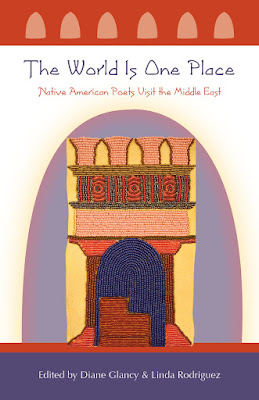
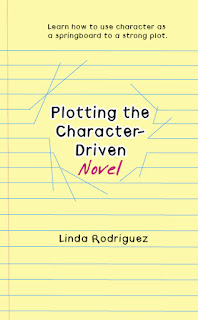
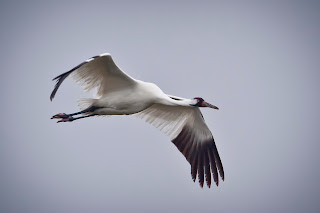
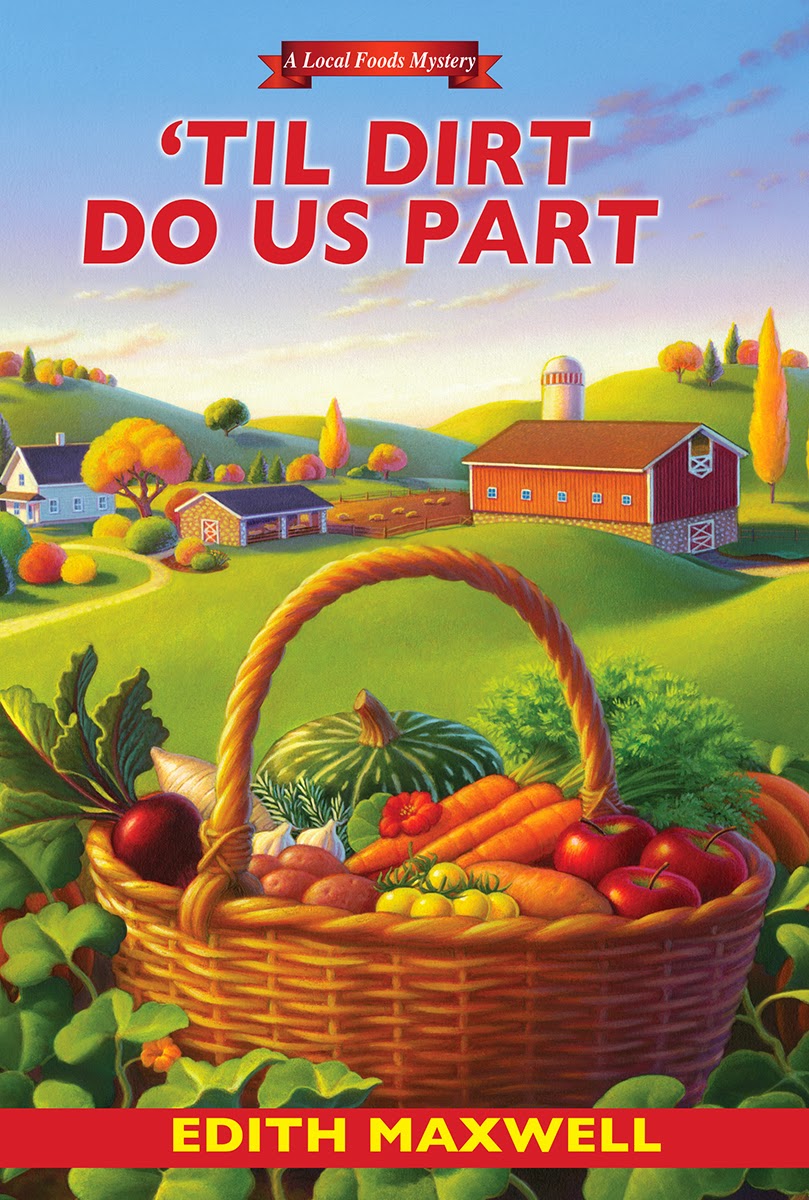
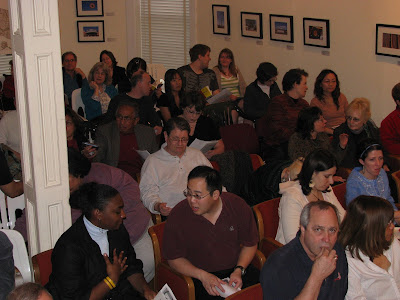
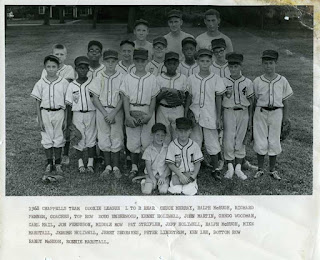


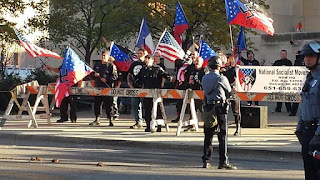
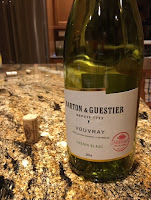

Congratulations, Linda! What a special accomplishment! The cover is spectacular, and I'm sure the contents are magnificent. Wow!!! Kudos!
Thanks, C.T.! I love the cover. Kim Shuck is a highly regarded Native beadwork artist, as well as a poet, and that's her interpretation of a place she loved when she visited Petra.
congratulations!
Thank you, Margaret! I'm sorry I missed this when your comment when it posted.